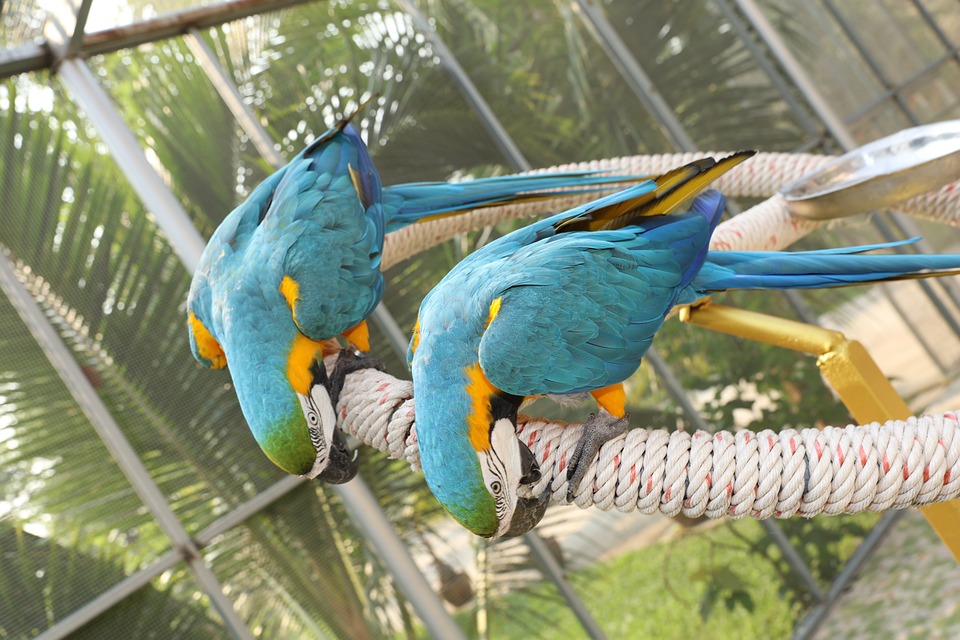Parrots are highly intelligent and social birds that require mental and physical stimulation to thrive. As a parrot owner, it is crucial to understand and cater to their natural behaviors. One of the essential aspects of parrot behavior is social play with other birds. In this article, we will explore the importance of social play for parrots and how it contributes to their overall well-being.
Social play is crucial for parrots as it fulfills their instinctual need for social interaction. In the wild, parrots live in flocks and rely on social bonds for survival. By engaging in social play, parrots are able to mimic natural flock dynamics and develop appropriate social skills. This form of play also provides mental stimulation and enrichment for parrots, keeping their minds active and preventing boredom.
Furthermore, social play contributes to the emotional well-being of parrots and strengthens the bond between parrot and owner. By interacting with other birds, parrots experience a sense of companionship and belonging, which can help prevent feelings of loneliness and depression. Social play also allows parrots to engage in species-specific communication, including vocalizations and body language, further enriching their social experiences.
There are various types of social play in which parrots engage. Flock dynamics and mimicking behaviors are common forms of social play, where parrots learn to interact with others and mimic their behaviors. Physical play and games, such as wrestling and chasing, provide exercise and entertainment for parrots. Vocalization and communication play a vital role in social play, as parrots use various sounds and calls to communicate with their flockmates.
Providing opportunities for social play is essential for parrot owners. While having multiple birds in the household can facilitate social play, it is not the only option. Aviaries and flight enclosures allow parrots to interact with other birds in a larger space, mimicking a natural environment. Organized parrot playdates and socializing with other parrot owners can also provide opportunities for social play and interaction.
There are several common misconceptions about social play in parrots. Some people believe that parrots can solely rely on human companionship for their social needs. While parrots can form strong bonds with their human caregivers, interaction with other birds allows them to learn and mimic natural behaviors, develop appropriate social skills, and engage in species-specific communication.
Another misconception is that solo parrots can develop equivalent social skills. While solo parrots can form strong bonds with their human caregivers, they may lack the opportunity to engage in natural flock dynamics and learn appropriate parrot behaviors. Social play with other birds provides a valuable learning experience for parrots.
Lastly, some people believe that social play is only significant for hand-raised parrots. However, even hand-raised parrots can benefit greatly from social play with other birds. Hand-raised parrots may have had limited exposure to their species’ natural behaviors, making social play even more essential for them. It helps them learn appropriate parrot communication and behavioral cues.
Inadequate social play can have negative consequences for parrots. A lack of social interaction can lead to behavioral issues such as excessive screaming, feather plucking, aggression, and anxiety. Parrots deprived of social play may also experience loneliness and depression. By understanding the importance of social play, parrot owners can prevent these issues and promote the overall well-being of their feathered companions.
In conclusion, understanding and facilitating social play with other birds is crucial for the overall well-being of parrots. By providing opportunities for social interaction, parrot owners can enhance their feathered companions’ mental and physical health, stimulate their natural behaviors, and strengthen the bond between parrot and owner. Remember, a socially engaged parrot is a happy parrot!









